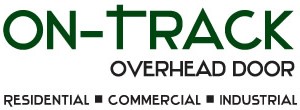Deposit – A very common term in the rental world, it is a sum of money provided by the tenant before the move-in date to protect the landlord from the cost of damage that may occur during the duration of the occupation. A lease (or lease) is a document that explains the conditions under which a tenant rents a residential or commercial property to a landlord. Grace period – The period from the day rent is due during which the landlord must wait before they can charge a late fee. (The period must be indicated in the lease and is usually approximately five (5) days.) Learning that a tenant has released rent before termination is, to say the least, sobering news. However, the importance of staying calm and collected in the middle of the range of emotions felt cannot be underestimated. It is important to understand that a lease is a binding agreement and, with the tenant`s signature, it guarantees that they will pay the rent for the duration of the lease. In the event of a lease breach, the following steps must be followed: Next, you must check the references provided by the tenant in his rental application form mentioned in step 2 above. From A to Z, use the glossary to know some terms of a lease. Sublease Agreement – For a tenant who wishes to rent their apartment to another person (the “Subtenant”). The landlord usually has to agree, as most standard leases prohibit the deed of subletting.
Property Description – The physical address of the rental property, i.e. street name and house number, unit number, city, state and postal code. Official form used to verify tenants before signing a lease. Subletor – The original tenant of a rental property. Acts as landlord of the subtenant. Lease Extension – Extension of leases after the contract expires. Eviction – A formal action taken by the landlord to exclude the tenant from the rental property. A lease is a contract between an owner and the tenant in which they describe their conditions of renting a property. A commercial lease is specific to tenants who use the property for commercial or residential purposes, depending on the type of property rented. However, some agreements are very detailed, which would sometimes turn away the supposed tenants. The solution, make it easy.
So if you place it on a single page, it is not only easier to read, but also more acceptable to the parties involved. All ezLandlordForms are specific to the user`s state. Once you start entering your information into the free rental questionnaire, the rental assistant automatically generates questions and information about the form specific to the applicable laws of the state or province where the property is located. That way, you don`t have to worry about whether a portion of a lease you create will somehow become invalid by a state law you don`t know. If you`re in a hurry to get a lease, or want to get an idea of what an extension of the lease would look like, you don`t have to look any further. You can get this PDF template for the lease renewal contract immediately. Just copy the template into your JotForm account and get it in seconds! Terms and Conditions – Guidelines that are set out in a contract and must be followed in order to maintain a valid agreement. Whether you want to rent a warehouse, garage or warehouse in conjunction with a residential rental or as a completely separate rental agreement, the ezLandlordForms garage/warehouse rental agreement contains all the necessary information.
Each state in the United States has its own rules and regulations regarding landlord-tenant relations. See the table below for more information about your state`s rental laws. Anyone involved in renting a property should have a residential lease that defines the terms of the contract and legally protects all parties involved. These people include property managers looking for tenants and vice versa, social service providers looking for supportive housing, real estate agents and anyone looking to rent or rent a property. You create a lease by writing it yourself from scratch, filling out an empty [lease template] that contains all the required clauses, or using a [lease creator] to create a lease specific to your property. If you rent a property but don`t use a lease, you could lose rental money, be held responsible for illegal activities on the property, receive penalties for unpaid utilities, or spend a lot of money to repair property damage and attorneys` fees. .
